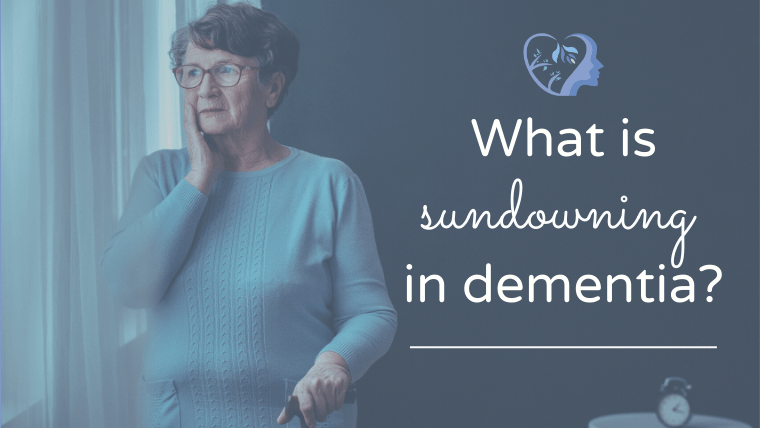What is sundowning in dementia?
In autumn and winter, as the nights draw in, you might notice some changes in the behaviour of a loved one with dementia. This is known as sundowning, or sundowning syndrome – a phenomenon often characterised by changes in behaviour that occur when the sun goes down.
People experiencing episodes of sundowning may become more confused and behave out of character; they might suddenly be more anxious or aggressive, or they may pace or wander.
Sundowning is not a disease in itself; rather, it’s a series of symptoms associated with dementia that tend to affect individuals at a certain time of the day, for a few months at a time.
Sundowning can be challenging to deal with but having access to expert information and advice can be helpful in managing episodes and making life more comfortable – both for the person you’re looking after, and for yourself.
What are the signs of sundowning?
When someone is experiencing an episode of sundowning, they may show the following symptoms:
-
Agitation and restlessness
-
Irritability and aggression
-
Confusion and disorientation
-
Changes in mood
-
Pacing or wandering
They may also become more demanding and suspicious. Episodes usually last at least a couple of hours and may persist throughout the night until the morning.
What causes sundowning?
There’s no known cause of sundowning as such, but there are factors that may contribute to a person experiencing sundowning syndrome.
Somebody with dementia will become more tired as the day progresses, which can make their symptoms more pronounced. If they’re hungry, thirsty, in pain or suffering from a urinary tract infection (UTI), this can also contribute.
Around dusk, when night falls and the lights come on outside and in other people’s homes, individuals can become confused and unsettled. They may feel like they’re in the wrong place, or that they’ve forgotten to do something important during the day, which can make them worry.
Increased shadows, low lighting and disruption of the body’s internal clock combine to make some individuals with dementia feel particularly confused, and they experience sundowning as a result.
What stage of dementia is sundowning?
Sundowning tends to affect people in the mid to late stages of Alzheimer’s disease or other types of dementia.
Symptoms often worsen as the disease progresses, but the good news is that there are lots of ways to manage the signs of sundowning.
Sundowning dementia treatment
Sundowning can be distressing for the person and for their caregivers. It also poses several risks to the individual, such as an increased likelihood of falls or the potential to hurt themselves during an aggressive episode.
Bringing the symptoms of sundowning under control is often possible at home without the need for medication but in some cases, medicines may be suggested too.
In the first instance, try the following tips to manage sundowning in your loved ones with dementia.
-
Follow a predictable routine for waking, sleeping and eating.
-
Plan for exposure to sunlight in the daytime so the person feels sleepy at night.
-
Don’t let them nap too much during the day.
-
Restrict caffeine and sugar intake after noon.
-
Limit stimulating activities and noise in the evenings.
-
Plan for relaxing evenings with soothing, gentle music.
-
Bring familiar items like photos into unfamiliar settings.
-
Try a nightlight in dark or unfamiliar settings.
-
Distract them during busy times in a care setting like shift changes.
-
Get your loved one checked over for UTIs or other conditions.
In some instances, medication may be necessary to help manage the symptoms of sundowning in dementia. Doctors may suggest melatonin supplements or antipsychotics with sedative properties to help an individual sleep better at night.
Light therapy is another option – exposure to bright light in the morning may help to reduce the symptoms of sundowning syndrome later in the evening.
Here to help with dementia care in Stockport, East Cheshire and South Manchester
For more advice or hands-on help, get in touch with us anytime – we’re here to help.
Ambiance Care offers personalised dementia care in Stockport, East Cheshire and South Manchester with years of experience in everything dementia related, including sundowning.
Get in touch with us for more information on 0161 537 0983 or email us at enquiries@ambiancecare.co.uk.


